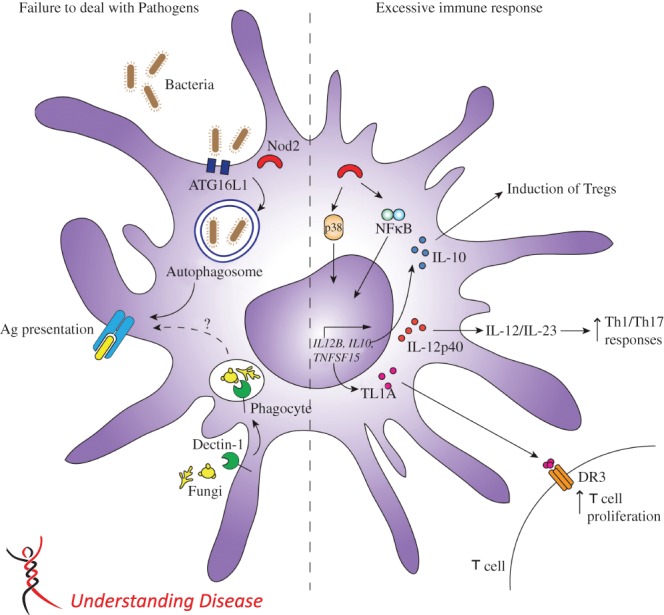Figure 1.

Impact of IBD genetic polymorphisms on dendritic cell function. Polymorphisms in IBD susceptibility genes in dendritic cells can be broadly categorized as either inhibiting the ability to effectively clear pathogens or contributing to excessive immune response. Dendritic cells play an important role in autophagy and presentation of bacterial antigens. SNPs associated with this pathway, including Nod2 and ATG16L1, can contribute to failure to deal with pathogens. Additionally, dectin-1 is important for the clearance of fungal pathogens by enabling dendritic cell recognition of β-1,3-glucans in fungal cell walls. A number of IBD susceptibility genes are linked to the excessive immune response which is characteristic of both Crohn's disease and ulcerative colitis. Nod2 in dendritic cells is upstream of MAPK and NF-κB, which are important regulators of pro-inflammatory cytokines. Impaired regulation of the inflammatory response caused by polymorphisms in Nod2, IL12B or TNFSF15 may result in excessive and prolonged pro-inflammatory T-cell responses. In addition, dendritic cells regulate the immune response through production of the anti-inflammatory cytokine IL-10. SNPs in IL-10 may result in loss of regulatory T cells, leading to excessive immune response.
